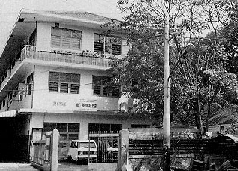 By Allie Martin
By Allie Martin(AgapePress) - A ministry that was formed to increase awareness of the persecuted Church worldwide is helping orphans in Indonesia, one of many nations around the globe where Muslim persecution against Christians has increased dramatically in recent years.
Some of the children of Christians martyred for their faith in Indonesia become homeless, while others are often left with poor relatives who may or may not be able to care for their needs. For this reason, the Indonesian office of Voice of the Martyrs (VOM) established a safe house for orphans. Still, VOM's Todd Nettleton notes, many of these orphans face an uncertain future.
"Children whose mother and father are killed by radical Muslims -- what do they do? How do they continue to get their education?" Nettleton asks. The answer, he points out, is a well-meaning but frequently impractical generosity on the part of relatives.
"The Indonesian culture has a great love for children, and so it's very common for family members to take in the orphans and to allow them to live with them," the ministry spokesman says. "But obviously that's a financial strain, and to continue your education costs money."
Orphans that are taken in by family members may be wanted and loved, Nettleton asserts, but the care and education of these children are still expensive. "So if the family is very poor, that's a very difficult thing," he says. "And if there is no family, obviously that's a difficult thing," he adds.
Meanwhile, the persecution of Christians is ongoing, with government officials in Indonesia helping to drive the violence and intimidation tactics being used against the Church. In the past 12 months, VOM reports, dozens of Christian places of worship have been closed by government decree.
"I think that the radical Muslims have gained more and more political power," Nettleton says, "and they have used that to pressure the government to support their efforts to close down the churches."
Indonesia's constitution purportedly guarantees religious freedom, and "the government talks a good game about religious freedom," the VOM spokesman contends, "but more and more in the last 12 months, we're seeing [that government officials] don't actually step up to the plate and protect Christians."
Voice of the Martyrs, headquartered in Bartlesville, Oklahoma, is a non-profit, international and interdenominational organization that seeks to aid, support, and advocate for Christians who are being persecuted for their faith in Jesus Christ. The ministry also works to fulfill the Great Commission and to educate the world about ongoing persecution of believers all over the world.
Allie Martin, a regular contributor to AgapePress, is a reporter for American Family Radio News, which can be heard online.


